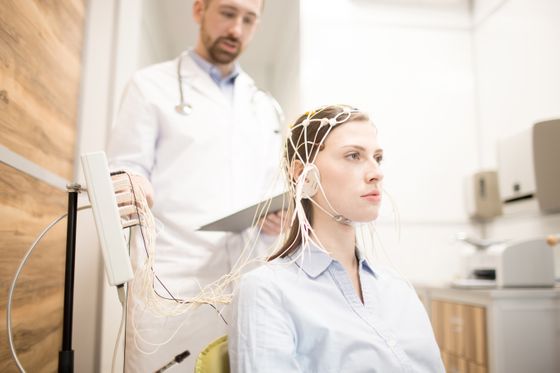The brain has a defense mechanism that treats 'death' as 'every person'

by
On TV and the Internet, the news that the death occurred in disasters and accidents flows without fail, but such `` death '' seems to be an unfortunate event somewhere far away, There may be few people who are alive while thinking that 'I may die in the same way.' The reason for this is that the latest research has found that the brain has a defense mechanism that protects itself by thinking that death is every person.
Prediction-based neural mechanisms for shielding the self from existential threat-ScienceDirect
https://www.sciencedirect.com/science/article/abs/pii/S1053811919306688
Your Brain 'Shields' Itself from the Existential Threat of Death | Live Science
https://www.livescience.com/brain-shields-idea-death.html
Doubting death: how our brains shield us from mortal truth | Science | The Guardian
https://www.theguardian.com/science/2019/oct/19/doubting-death-how-our-brains-shield-us-from-mortal-truth
The brain function that prevents thinking of one's death was discovered by a research group of Yale Dol-Seiderman et al., Who is studying the brain at the Gonda Brain Research Center , University of Bal Iran , Israel. Dr. Seiderman, who believes that the brain has a predictive function for living organisms, gathered 24 volunteers to study how the brain's predictive mechanism handles his death. We conducted an experiment to measure brain waves.

by
In this experiment, the subject's own face photo or a red other person's face photo is shown along with words related to death, such as “grave”, “burial”, and “funeral”. Researchers used the monitor to measure subjects' brain waves while showing their photos and words to examine how the brain responded.
In the first experiment, the subjects were shown some 'faces' and 'words reminiscent of death' to learn the relationship between them, and then showed another person's face. Then, as expected by the researchers, the brain of the subject who showed an unexpected face showed an electroencephalogram indicating “surprise”. This means that the subject learned the relationship between 'words reminiscent of death' and 'specific others' and was surprised when a new face appeared.
In the next experiment, subjects first showed their own face and words associated with death, and learned the relationship between them. If it is the same as the first experiment, the brain wave should show surprise when the next combination of “new face” and “words associated with death” is shown, but the subject's brain did not show surprise That. Researchers believe that this means that the prediction mechanism of the brain does not work for “self” and “words associated with death”.

by Prostock-studio
Avi Goldstein, the co-author of the paper, said the test results: “When you face information that reminds you of your own death, the brain shuts down the prediction mechanism and classifies it as someone else.” He pointed out that stopping the brain reaction was the result of the defense mechanism working.
Dr. Seidermann also said, “Unlike the present day when death was isolated in the hospital, there was a lot of death around human beings living in nature. If we did so, we would not have been able to survive the survival competition unless we did our best in the fear of death, ”he said, explaining that these defense mechanisms helped humanity survive It was.
Related Posts:
in Science, Posted by log1l_ks







